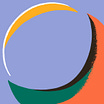The Censors Silencing Afghans Online
With millions of websites banned and Taliban officials stalking social media sites, Afghans need a safe way to stay online.
Switching on the news in Afghanistan, Mansoor Ramizy often watched presidents, ministers, and other leaders questioned on national television. Growing up, he took this for granted. “News was open, free and discussed the facts, no matter how harsh and bitter,” he says. One year into the Taliban regime, those freedoms have been swept away, and the 20-year-old is painfully aware of the danger a “heavily fabricated” news output poses to his country.
“The impact will be a society where Taliban ideology gets pumped out endlessly… and eventually, the brainwashing will be so effective that nobody will ever want to hear about democracy, liberty or freedom of speech again,” says Ramizy, who was forced to flee when the Taliban seized power last year. He now works as Afghanistan program manager at Ideas Beyond Borders, supporting organizations and individuals in his country that are providing access to education and promoting freedom of speech in defiance of the Taliban regime.
Not content with clamping down on the media, the Taliban is also tightening its grip online, blocking over 23 million websites for broadcasting what it says is un-Islamic and “immoral” content. This includes the websites of some political figures and opponents of the regime. Speaking at a press conference last month, Najibullah Haqqani, the Taliban minister of communications, said: "We have blocked 23.4 million websites. They are changing their pages every time. So, when you block one website another one will be active."
The Taliban went on to criticize Facebook for refusing to cooperate with its attempts to moderate content on the platform. Instead, the group has found other ways to impose censorship across Facebook and other sites. Namrata Maheshwari, Asia Pacific Policy Counsel at Access Now, an NGO that advocates for digital rights, told Bloomberg that activists, journalists and human rights workers “have consistently shared that their mobile phones are routinely checked by the Taliban to gather sensitive information.”
“There is a very real link between digital safety and physical safety,” she said.
In the days leading up to the takeover, people rushed to hide or delete their Facebook accounts, some using a special lock-down tool shared by the social media giant as the Taliban swept into Kabul on August 15 last year. Since then, posting content that violates their rules has become extremely dangerous. Even Afghans who have escaped to countries like Pakistan, Iran and Turkey often self-censor themselves until they reach their final country of settlement in the US, UK, Europe and Canada, says Ahmad Shabir, a social media consultant and marketing expert in Afghanistan. “There are hundreds of accounts publishing news, images and videos showing Taliban atrocities in the field, but they are under fake names to protect their identity,” adds Shabir, who is using a pseudonym to protect his identity.
Many of Afghanistan’s estimated 3.7 million Facebook users are unfamiliar with digital security and remain exposed to the increasingly dangerous online environment under the Taliban regime. Yet avoiding the internet carries even greater risks, says Ramizy, pointing to the group’s insidious influence in all areas of learning, including schools, mosques, madrasas and universities. “The internet is now the only means by which Afghans can connect, get help, access books and podcasts, received uncensored news from other countries and in return provide the outside world with an insight into what’s really happening in the country,” he adds.
One way to circumvent the Taliban censors is via a VPN. Ideas Beyond Borders is working with Lantern, a US-based VPN provider, to make safe and secure browsing available to Afghans without charge. Lucas Taylor, strategic advisor at Lantern, says the aim is to “get it into the hands of as many people as possible.” The company is also planning to safeguard IBB content, videos and podcasts to provide censorship-resistant content through its Discover feature, where users can search for and upload material without leaving a trace.
“We are dedicated to providing free and open access to information around the world with the belief that all societies ultimately benefit when there is as much transparency as possible,” says Taylor. “Beyond uncensored news, free and open access to communication has a direct impact on people's lives, including things such as being able to download applications to foreign colleges or online courses for women who might have trouble accessing traditional educational systems.”
The impact is already apparent. Since the start of the protests, Lantern users in Iran have grown by approximately 400 percent to around 8.5 million monthly active users, and network traffic has skyrocketed accordingly to almost 200 gigabits per second, which they estimate to be as much as 13% of all Iranian internet capacity. However, increasingly aggressive efforts by the Iranian regime to curtail online communication is driving up server costs and threatening the project's longevity. Lantern recently launched a fundraising campaign, as the costs to sustain this much traffic are unsustainable at scale.
In a marked shift from the internet ban imposed by the first Taliban regime in 1996, today’s Taliban is harnessing the digital space, publicizing its message through a network of social media accounts and communicating with Afghans online. “The past 20 years modernized not only Afghans living under the republic, but also the Taliban forces and their tactics… though their agenda and ideology is still the same,” says Shabir.
When the Taliban seized power last year, there was initial concern that the internet would be cut off, but the group has since announced they are upgrading the country’s networks to 4G, with plans to expand access to remote corners of the country. “The censorship, propaganda and news broadcasts are a desperate call for the world to recognize them as the legitimate administration of Afghanistan… hence why the internet is still running and the TV networks are still active,” says Shabir.
However, some areas, including Panjshir Province, remain entirely cut off from the internet as the Taliban seeks to quell the resistance there. There is little mention of this in the country’s news cycle, but atrocities by the group in the region, including summary executions and forced disappearances, have been documented by Human Rights Watch and other organizations.
“Media face mounting restrictions from the regime, leaving journalists with no option but to avoid covering violent incidents by the ruling government due to the threat to their lives,” says Shafi Karimi, an Afghan journalist who is launching the Afghan Journalists in Exile Network (AJEN) to provide access to real news from the country. The network, which is receiving Innovation Hub funding from IBB, will support Afghan journalists working at home and abroad as they struggle to shed light on events in Afghanistan. “Even before the takeover, the situation wasn’t great… but now you can’t publish anything without the risk of getting your head chopped off,” he says.

The effect is showing as news from the country slows, and information becomes harder to corroborate. “Afghanistan is isolated now. I fear the world is forgetting and growing insensible to the atrocities taking place,” says Ramizy. It’s not just exposing the Taliban and ensuring the world doesn’t recognize the regime, but providing ordinary Afghans with the means to resist their indoctrination. “Access to content beyond what is shown by the Taliban will at least preserve some hope for a better, more educated and well-informed future for our people,” Ramizy adds.








